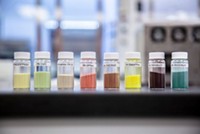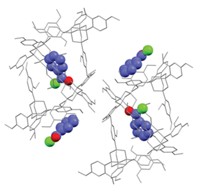Advertisement
Grab your lab coat. Let's get started
Welcome!
Welcome!
Create an account below to get 6 C&EN articles per month, receive newsletters and more - all free.
It seems this is your first time logging in online. Please enter the following information to continue.
As an ACS member you automatically get access to this site. All we need is few more details to create your reading experience.
Not you? Sign in with a different account.
Not you? Sign in with a different account.
ERROR 1
ERROR 1
ERROR 2
ERROR 2
ERROR 2
ERROR 2
ERROR 2
Password and Confirm password must match.
If you have an ACS member number, please enter it here so we can link this account to your membership. (optional)
ERROR 2
ACS values your privacy. By submitting your information, you are gaining access to C&EN and subscribing to our weekly newsletter. We use the information you provide to make your reading experience better, and we will never sell your data to third party members.
Synthesis
Stir bar stashes sensitive solids
Magnetic capsule springs open at high spin speeds to release its payload
by Bethany Halford
September 1, 2021
| A version of this story appeared in
Volume 99, Issue 32
A capsule that releases its contents under just the right conditions seems like something a spy might use. But unlike James Bond’s martinis, this new tool for chemists is stirred, not shaken. Magnetic stirring capsules, reported by chemists at the University of Geneva, release solids when they spin at high speed.
Clément Mazet, Sylvain Taillemaud, and Stéphane Rosset developed the magnetic stirring capsules to help chemists prevent air- and moisture-sensitive reagents from reacting with their surroundings. Chemists typically use glove boxes full of inert gas to work with such reagents, but the bulky gloves can be awkward. A few years ago, chemists at the Massachusetts Institute of Technology reported paraffin capsules that melt and release sensitive reagents. The downsides were that the paraffin had to be removed from the reaction products, and the reactions had to be run at elevated temperatures so that the capsules would melt.
The new magnetic stirring capsules don’t eliminate the need for a glove box—that’s where the capsules are loaded. But they can be used at low temperature and in both polar and nonpolar solvents. Because the capsules are made from inert polytetrafluoroethylene, they can be cleaned and reused, and they leave no residue. The chemists have made them in two sizes: 1.5 cm3 and 5.0 cm3 (Helv. Chim. Acta 2021, DOI: 10.1002/hlca.202100110).
Neil Garg, an organic chemist at the University of California, Los Angeles, says in an email that the capsules “have the potential to be a game changer, since they avoid the use of chemical additives, like wax, that have been used previously but can sometimes impact reactivity and necessitate multistep purifications.”
Garg says he’d be interested in using the capsules for research and teaching. But he’ll have to wait. Although Mazet and colleagues have patented the magnetic stirring capsules, they’re not yet for sale.





Join the conversation
Contact the reporter
Submit a Letter to the Editor for publication
Engage with us on Twitter